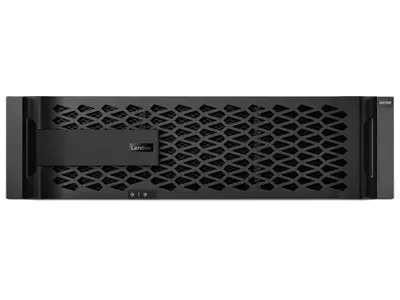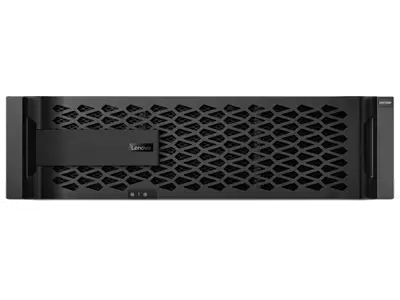Data is at the core of business, from small and medium sized businesses (SMB) to enterprise-level tasks handled in corporate data centers. If you’ve found yourself juggling USB drives, wrestling with cloud accounts, or wondering how to organize your overflowing digital business life, unified storage might be the answer you’re seeking. But here’s the question you should ask yourself first: How can you leverage storage solutions to streamline your data, whether you’re remote working, in a small office, or running a multinational operation?
This guide will break down important points you need to know about unified storage, why it’s transforming the way we manage and protect data, and how finding the best NAS storage and related devices ensures your investment is both reliable and future-proof.
What is unified storage, and why does it matter?
Imagine having a single system that lets you handle all your files, whether it’s enterprise-grade business analytics or daily operations. That’s what unified storage promises. Unlike conventional storage technologies that limit you to specialized types of data, unified systems can handle a mix of structured and unstructured data, like documents, emails, videos, and databases, seamlessly.
Here’s the brillance of this tech: It operates on a single platform with unified protocols, meaning you don’t need separate hardware for file, block, and object storage. Whether you're storing Excel sheets or large video assets, unified storage simplifies your data organization, reducing complexity and cost.
Unified storage vs NAS storage devices
If you've been searching for the best NAS storage, you've probably come across a lot of buzzwords. NAS, short for Network Attached Storage, refers to dedicated devices that provide centralized data access over a NAS network storage solution.
But here’s where things get interesting. Today's NAS solutions often blur the lines with unified systems. Though a NAS storage device might traditionally focus on storing and sharing files in small to medium setups, many modern NAS solutions offer unified storage features, like integrated protocols for handling diverse file types.
Think of unified storage as the ultimate framework and NAS network attached storage as one implementation of that framework. Need a quick file dump or centralized access for multiple team members? A NAS device is ideal. Need scalable, hybrid-cloud-ready, AI-compatible data handling? Unified storage has your business covered.
Why choose unified storage over traditional SSDs?
Here’s a thought experiment. Think about the regular SSDs you might have in your laptop or desktop. They’re speedy, no doubt. But if you’ve been asking whether to invest in unified memory vs SSD storage for advanced usage, the answer lies in scalability and equal performance across file types.
Unified systems distribute workloads evenly between SSDs and spinning disks, optimizing both capacity and speed without requiring manual intervention. This dual advantage can cut down on costs in the long term while delivering efficient file handling for AI, analytics, and multi-user environments.
SSD drives on their own lack the centralized control, integrated data workflows, and hybrid capabilities that unified storage and NAS solutions offer. That’s why SSD drives often act as secondary tools rather than core storage solutions.
What makes a storage solution the "best"?
It’s a crowded marketplace; you can find enterprise-class systems that handle upwards of petabytes to no-frills options for NAS storage for home or remote databases. A strong contender will check a few boxes for storage:
- Simplicity without compromising power
You want a system that’s easy for IT Admin and users to navigate. The best NAS storage systems use intuitive interfaces while offering advanced controls like remote access, backup scheduling, and unified management.
- Data security that prepares you, not panics you
Modern unified storage systems often come equipped with features like end-to-end encryption, automatic ransomware detection, and even snapshot technology for disaster recovery. When selecting a system, look for those features.
- AI and cloud integration
Your future self will thank you for choosing a storage system that’s AI-ready. Unified storage solutions optimized for AI workloads handle tedious processing tasks while enabling faster insights. Seamless integration with cloud environments is also key for businesses wanting scalability.
- Affordably scalable
Whether you're a power user managing massive enterprise databases or dabbling in NAS storage for home businesses just starting, look for systems that scale effortlessly. The best solutions grow with your needs while keeping downtime to a minimum.
- Energy efficiency
Go green without sacrificing performance. Energy-efficient options not only help the environment but also cut down long-term operational costs.
NAS storage for SMB users and unified storage for enterprises
When it comes to managing digital assets, small and medium businesses (SMB) as well as enterprise organizations, are realizing the immense value of tailored storage solutions. For small teams, NAS storage offers simplicity, accessibility, and functionality. Meanwhile, enterprises benefit from the robust and comprehensive capabilities of unified storage. Understanding how these storage solutions cater to different needs can help you optimize your setup, whether you’re managing a family archive or driving business operations. You can even have NAS storage for home (especially freelance video businesses and creatives that have large and growing storage needs).
Simplifying data management with NAS storage for SMB
Remote collaboration, media management, and data storage have never been more efficient than with NAS network storage. These systems bring the convenience of centralized access, ensuring smoother workflows and better organization.
- Enhancing remote collaboration: If you’re part of a small, dispersed team, file management can be a major challenge. NAS storage for SMB, NAS storage for home businesses, or NAS storage for enterprises creates a shared, centralized hub for your digital files. Instead of juggling large email attachments or struggling with cloud storage limits, you have a dedicated space where team members can access, edit, and upload files in real time. This ensures everyone works on the latest version of a file, reducing errors and improving efficiency.
- Managing your digital life with media streaming and backup: Modern NAS storage devices are more than just file servers. They often come with media streaming capabilities, allowing you to organize and access video and graphic files, photos, and audio from one platform. Beyond convenience, they also provide peace of mind by backing up your invaluable data, keeping projects or creative work safe even in case of system failures.
Unified storage for enterprises
For businesses, unified storage is the powerhouse solution that tackles modern IT challenges with unmatched efficiency. It combines various storage types into one cohesive system, simplifying data management and scaling effortlessly as organizations grow.
- Empowering workflows through multi-protocol integration
Corporate environments are complex, often running different applications that require specific storage protocols. Unified storage supports a variety of protocols under one roof, such as file-level (NFS, SMB) and block-level (iSCSI, FC) storage. This eliminates the need for fragmented systems, creating a seamless infrastructure that can handle demanding tasks and diverse workloads with ease.
- Strengthening resilience with AI and ransomware protection
AI is revolutionizing how businesses use data. Unified storage systems integrate with advanced AI frameworks to analyze vast datasets, generate predictive insights, and even automate decision-making. Additionally, contemporary setups often come with built-in ransomware detection. These features proactively monitor data behavior, identifying threats like unusual activity or unauthorized access attempts. If triggered, the system isolates the threat and ensures rapid recovery with minimal downtime.
- Simplifying operations to maximize ROI
One major advantage of NAS network attached storage and unified systems in enterprises is their ability to consolidate IT assets. By reducing hardware sprawl and introducing centralized management interfaces, these systems cut operational costs significantly. This not only improves efficiency but also allows IT teams to focus more on innovation rather than maintenance, ultimately increasing the return on investment.
Unified memory vs SSD storage considerations
Choosing between unified memory and SSD storage depends on your priorities and how you plan to use your system. Each offers unique advantages tailored to specific needs. Unified memory stands out in large-scale, flexible environments, while SSD storage excels in delivering lightning-fast performance for localized tasks.
What should my business know about unified memory and SSD storage?
- Unified memory optimizes large-scale workflows with dynamic resource allocation
- SSD storage is ideal for high-speed operations and quick data access
- Many unified systems integrate SSD technology for frequently accessed data
- Hybrid setups combine the best of unified memory and traditional drives, optimizing performance and capacity
Deciding between them isn’t just about speed or flexibility; it’s about striking the right balance for your unique business demands. A hybrid strategy often delivers the best of both worlds while maximizing efficiency.
How Lenovo is revolutionizing unified storage
Navigating the realm of NAS storage devices and unified storage solutions can be daunting without the right partner. Lenovo offers an adaptable storage option for all our devices designed with business users of all levels in mind and ensures that each solution is crafted to balance cost, functionality, and scalability seamlessly.
Whether you're an SMB seeking simplicity or an enterprise aiming to streamline complex workflows, Lenovo’s approach to unified storage embodies flexibility and user-centric design. The emphasis remains on modernizing data storage while prioritizing security, efficiency, and integration.
4 Ways unified storage prioritizes modernization, security, efficiency and integration:
- Scalable solutions that grow with your needs, from small setups to enterprise-level infrastructures
- Advanced hybrid cloud integration for seamless data accessibility and management
- Industry-leading security features to safeguard sensitive information
- A focus on improving user experiences with intuitive management tools and interfaces
Lenovo redefines NAS network storage by offering innovative, versatile, and highly secure solutions, making it easier than ever to align your storage systems with your business goals.
Lenovo Solutions for SMB and Enterprise Storage Needs
Unified storage and NAS storage solutions are transforming the way individuals and businesses manage their data, ensuring scalability, security, and efficiency. By merging modern technologies like hybrid setups and multi-protocol functionality, unified systems simplify processes and drive innovation. Lenovo, a global leader in technology, plays a pivotal role in enhancing NAS network storage with its commitment to user-centric design and cutting-edge solutions. Whether you’re optimizing SMB workflows or bolstering enterprise operations, Lenovo brings unmatched expertise to unify your storage strategy seamlessly.









